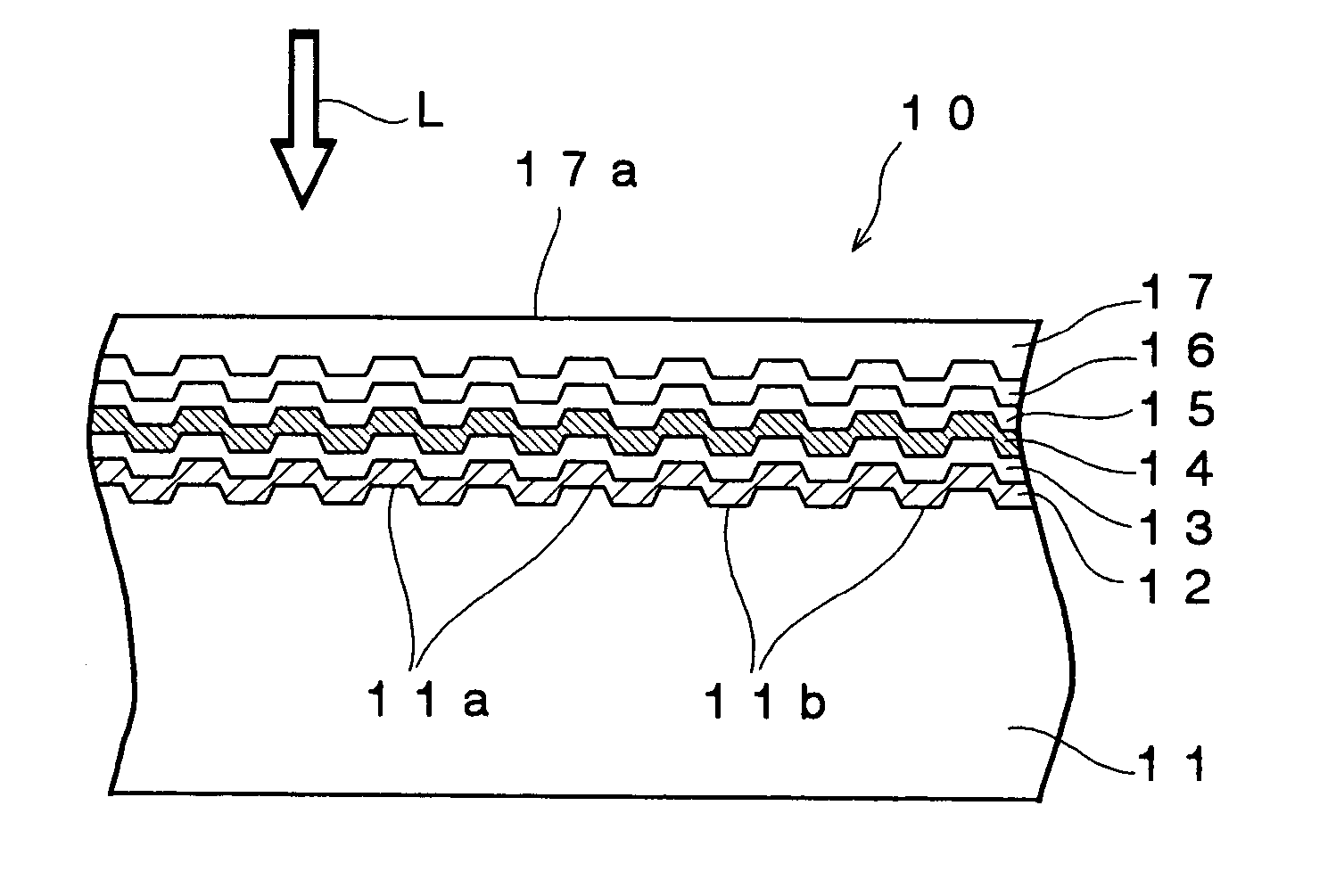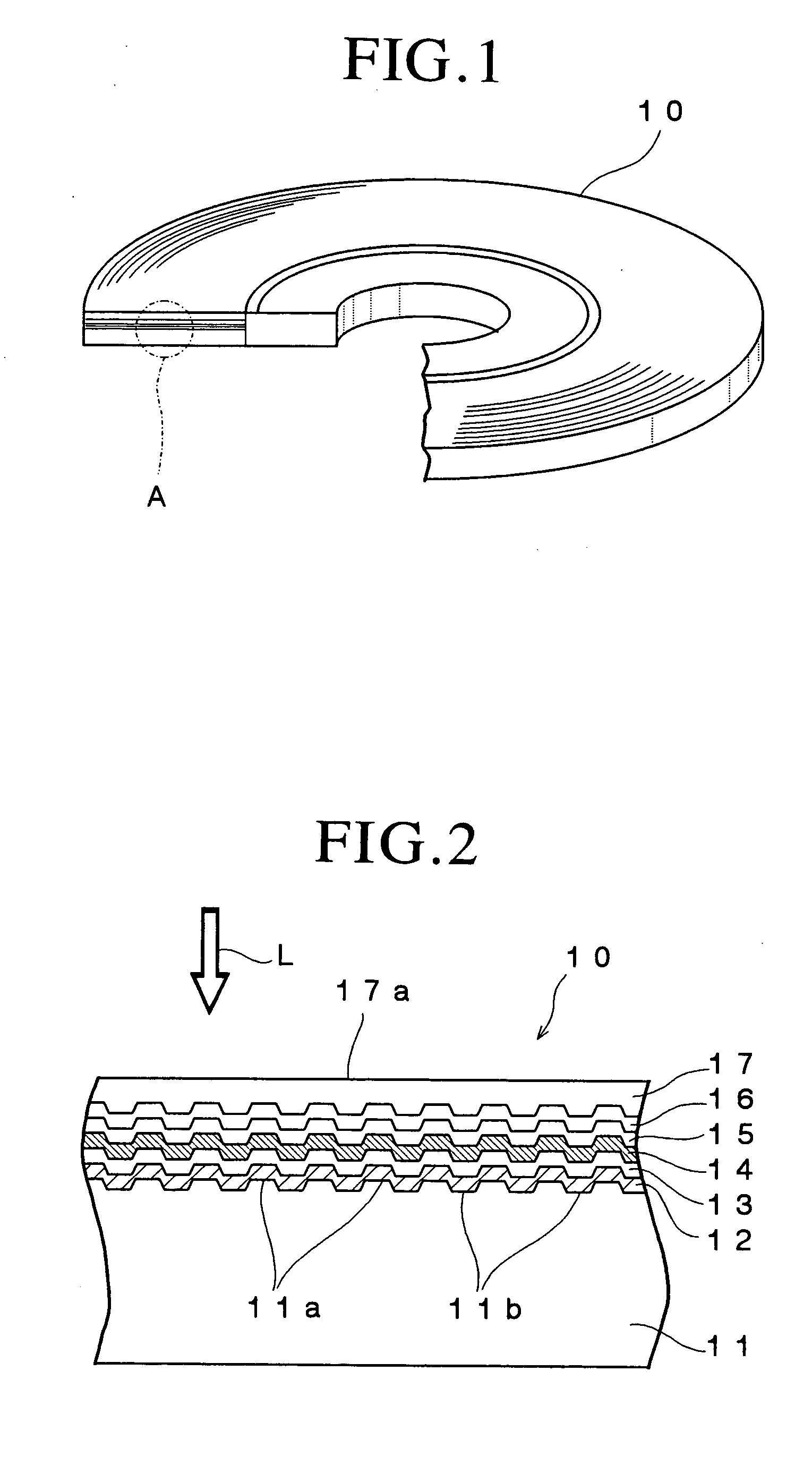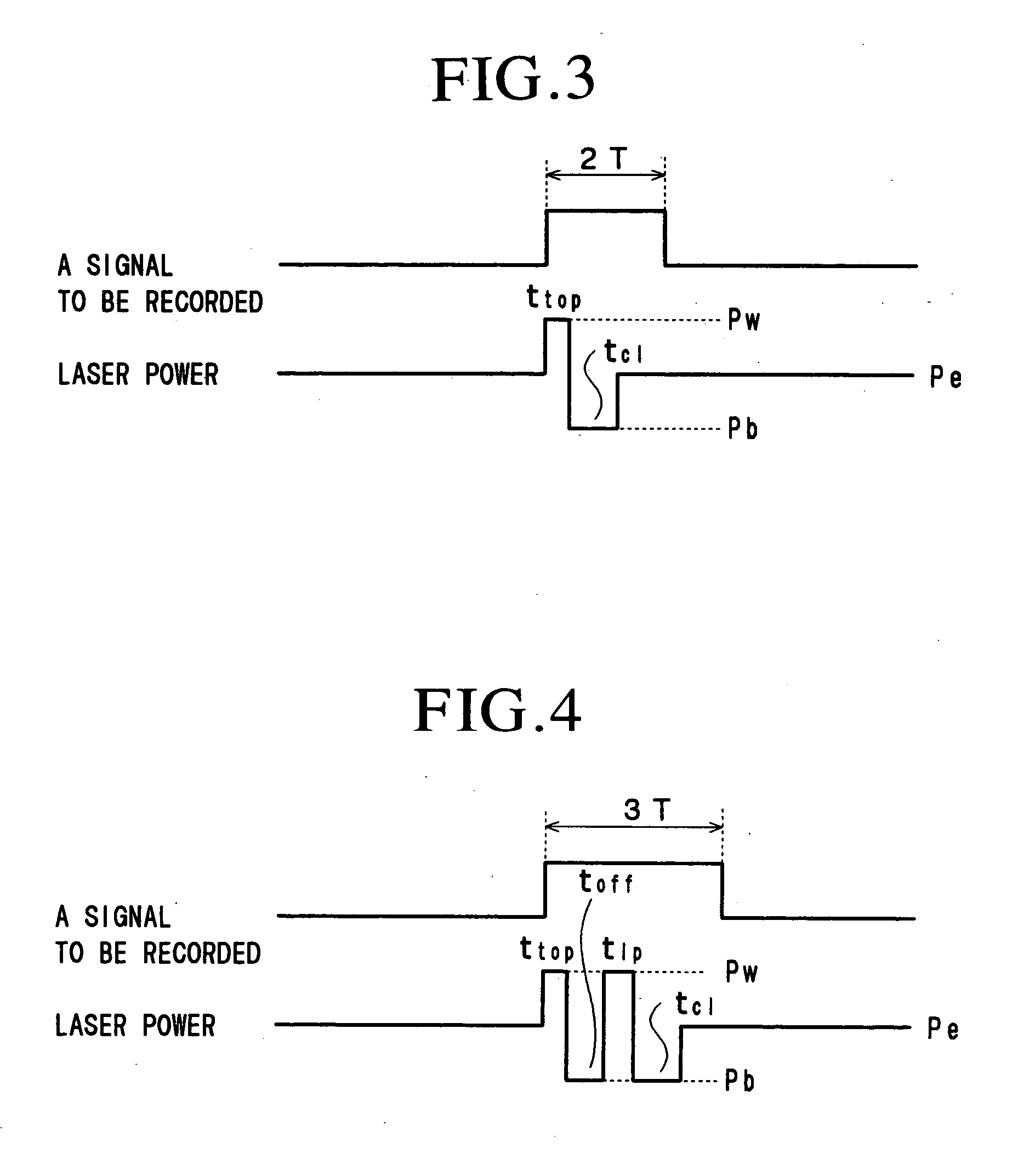Optical recording medium
a technology of optical recording medium and optical constant, which is applied in the field can solve the problems of small difference in optical constant between before and after data recording, degraded storage reliability of optical recording medium, and erased record marks
- Summary
- Abstract
- Description
- Claims
- Application Information
AI Technical Summary
Problems solved by technology
Method used
Image
Examples
working example
[0134] An optical recording medium sample # 1 was fabricated in the following manner.
[0135] A substrate of polycarbonate having a thickness of 1.1 mm and a diameter of 120 mm and formed with grooves and lands on the surface thereof was first fabricated by an injection molding process.
[0136] Then, the substrate was set on a sputtering apparatus and a reflective layer consisting of an alloy containing 90 atomic % or more of Ag and added with Pd and Cu and having a thickness of 100 nm, a second dielectric layer consisting of a mixture of ZnS and SiO.sub.2 and having a thickness of 10 nm, a recording layer containing 58.2 atomic % of Sb, 19.3 atomic % of Te, 5.0 atomic % of Ge and 17.5 atomic % of Mn and having a thickness of 12 nm, a first dielectric layer consisting of the mixture of ZnS and SiO.sub.2 and having a thickness of 25 nm and a heat radiation layer containing 90 atomic % of more of aluminum nitride and having a thickness of 100 nm were sequentially formed on the surface of ...
PUM
| Property | Measurement | Unit |
|---|---|---|
| thickness | aaaaa | aaaaa |
| thickness | aaaaa | aaaaa |
| linear recording velocity | aaaaa | aaaaa |
Abstract
Description
Claims
Application Information
 Login to View More
Login to View More - R&D
- Intellectual Property
- Life Sciences
- Materials
- Tech Scout
- Unparalleled Data Quality
- Higher Quality Content
- 60% Fewer Hallucinations
Browse by: Latest US Patents, China's latest patents, Technical Efficacy Thesaurus, Application Domain, Technology Topic, Popular Technical Reports.
© 2025 PatSnap. All rights reserved.Legal|Privacy policy|Modern Slavery Act Transparency Statement|Sitemap|About US| Contact US: help@patsnap.com



